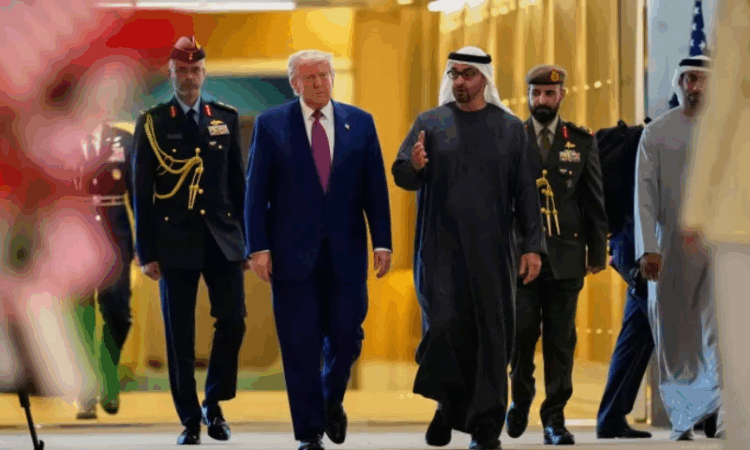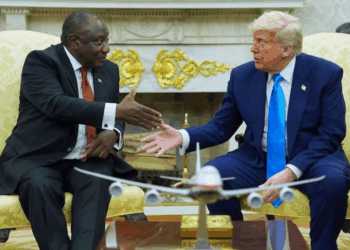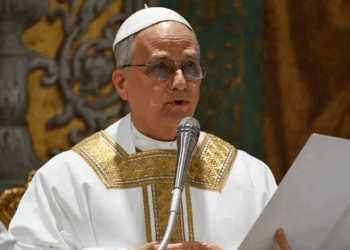Abu Dhabi, May 15, 2025: U.S. President Donald Trump arrived in the United Arab Emirates on Thursday as part of a broader Gulf tour focused on deepening strategic and technological partnerships, with artificial intelligence (AI) taking center stage.
The visit follows Trump’s high-profile stop in Qatar, where he lauded Doha’s pledge to invest $10 billion in a U.S. military facility and signed $42 billion in defense purchase agreements. Speaking to American troops at the Al Udeid Air Base, Trump hailed the military alliance and described Qatar’s cooperation as a model of U.S. partnership in the region.
Upon landing in Abu Dhabi, Trump was received by UAE President Sheikh Mohamed bin Zayed Al Nahyan. The leaders toured the iconic Sheikh Zayed Grand Mosque, which had been closed to the public for the day in a gesture Trump described as “a great tribute to the United States.”
“It is so beautiful,” Trump remarked inside the mosque. “First time they closed it. It’s in honor of the United States. Better than in honor of me. Let’s give it to the country.”
The UAE, eager to establish itself as a global AI leader, is seeking U.S. assistance to supercharge its ambitions. A preliminary agreement is in place to allow the UAE to import 500,000 advanced AI chips from Nvidia annually starting this year, according to Reuters. The chips are critical for powering data centers and developing large-scale AI models.
However, the agreement has triggered national security concerns within parts of the U.S. government, particularly over fears of technology diversion or misuse. The final terms of the deal remain under review, sources said.
A broader technology framework agreement, requiring security commitments from both sides, was also expected to be signed later in the day.
Sweeping Business and Diplomatic Engagements
Trump’s Gulf tour has generated a cascade of commercial deals:
- Qatar Airways signed a landmark agreement to purchase up to 210 Boeing widebody jets.
- Saudi Arabia pledged a staggering $600 billion in U.S. investments.
- U.S. arms sales to the Kingdom reached $142 billion in new agreements.
In the realm of diplomacy, Trump said in Qatar that the U.S. was “very close” to a nuclear deal with Iran, claiming Tehran had “sort of agreed” to the terms. He also announced the lifting of sanctions on Syria and met with Syrian interim President Ahmed al-Sharaa, encouraging him to establish diplomatic ties with Israel—a dramatic policy pivot.
Trump’s stance contrasts sharply with that of former President Joe Biden, whose administration had imposed strict controls on AI chip exports to the Middle East, citing concerns about diversion to China and potential military misuse.
If the UAE and other Gulf nations secure the proposed chip imports and expand AI infrastructure as planned, the region could emerge as a third global power center in artificial intelligence, alongside the U.S. and China.
Trump, known for his flair for symbolism, made a pointed comparison to Biden’s 2022 Gulf visit:
“I shook more hands than any human being is capable of doing,” Trump quipped aboard Air Force One. “He [Biden] travels all the way to Saudi Arabia, and he gives him a fist bump. That’s not what they want. They don’t want a fist bump. They want to shake his hand.”








